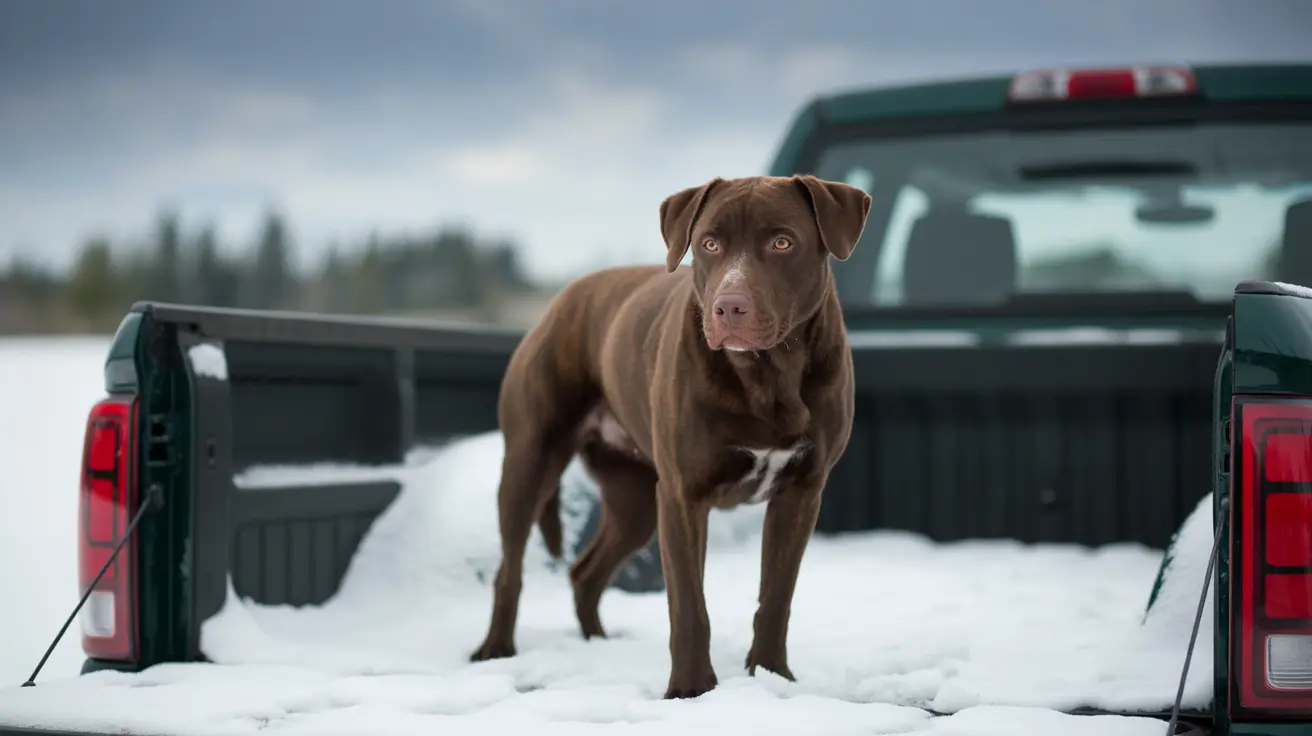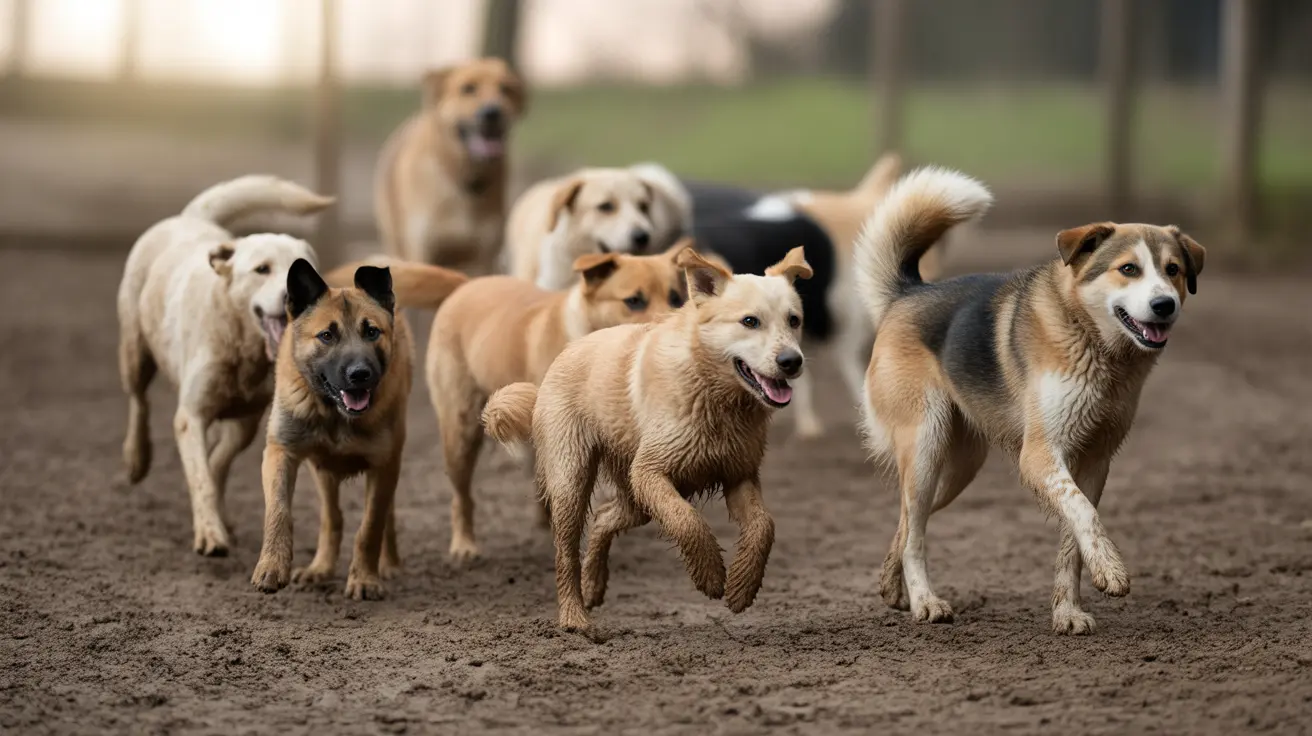Can Animals Have Down's Syndrome? Understanding Animal Congenital Disorders
Down syndrome is a well-known genetic disorder in humans, caused by the presence of an extra (full or partial) copy of chromosome 21. This condition affects physical growth, facial features, cognitive development, and increases susceptibility to certain medical issues. Given its specific genetic basis, a common question among pet owners is whether animals—especially dogs—can also have Down syndrome.
Genetic Basis of Down Syndrome in Humans
Humans have 23 pairs of chromosomes, totaling 46. Down syndrome results when there is a third copy of chromosome 21 (trisomy 21), leading to a complex collection of symptoms. These include:
- Distinctive facial features (flattened face, slanted eyes)
- Short stature and developmental delays
- Mild to moderate intellectual disabilities
- Higher risk of heart defects, thyroid conditions, and cognitive impairments
Why Animals Can't Have True Down Syndrome
Other animal species have different chromosomal makeups. For example, dogs have 39 chromosome pairs (78 total), not 23. Since Down syndrome is specifically tied to human chromosome 21, and no direct analog exists in dogs or other animals, they cannot have Down syndrome in a medical or genetic sense.
Conditions in Dogs That Mimic Down Syndrome
Though dogs cannot develop true Down syndrome, some congenital and developmental conditions may present with similar symptoms. These are caused by distinct genetic or hormonal issues and are not equivalent to trisomy 21. Common conditions that could mimic signs of Down syndrome in dogs include:
1. Congenital Hypothyroidism
- Caused by lack of thyroid hormone during early development
- Results in stunted growth, delayed development, skin problems
- Physical symptoms include a broad face, protruding tongue, poor muscle tone
2. Pituitary Dwarfism
- Most often affects breeds like German Shepherds
- Due to insufficient growth hormone production
- Leads to small stature, retained puppy coat, delayed tooth eruption
3. Congenital Hydrocephalus
- Fluid accumulation in the brain affecting neurological function
- Symptoms: domed skull, wide-set or downward eyes, seizures
- Common in toy and flat-faced breeds
4. Portosystemic Shunt
- Abnormal liver blood vessel connections preventing proper toxin filtering
- Behavioral changes, growth delays, digestive problems
5. Congenital Heart Defects
- Can cause fatigue, exercise intolerance, and developmental delays
Symptoms Resembling Down Syndrome in Dogs
Pet owners may observe the following symptoms and mistakenly interpret them as 'doggy Down syndrome':
- Abnormally shaped skull or flattened face
- Short limbs and stunted growth
- Slanted eyes
- Muscle weakness or hypotonia
- Cognitive or behavioral delays
- Hearing or vision impairment
- Skin and coat abnormalities, including bald patches
Often, these symptoms are evident early in a puppy’s life. In severe genetic abnormalities, some puppies may not survive long or might be rejected by the mother.
Diagnosing Genetic and Developmental Conditions
Animals with suspected congenital disorders should be evaluated by a veterinarian. Diagnostic tools include:
- Physical examination and history
- Blood tests for hormone levels (e.g., thyroid function)
- Imaging (ultrasound, CT, MRI) to identify abnormalities like hydrocephalus or liver shunts
- Genetic testing, though limited in veterinary medicine
While chromosomal testing is routine in human medicine, it's not commonly performed in dogs due to complexity and cost.
Treatment Options and Management
Treatment depends on the specific condition affecting the dog. Options may include:
- Hormone therapy (e.g., for hypothyroidism or growth hormone deficiency)
- Medications and surgery (e.g., to treat hydrocephalus or liver shunts)
- Dietary modifications and supplements
- Environmental adaptations—such as soft bedding, ramps, and gates—for safety and comfort
While these measures won't cure genetic disorders, they can significantly improve a dog’s quality of life.
Prevention Through Responsible Breeding
Certain breeds are more prone to specific congenital conditions. Preventative steps include:
- Pre-breeding genetic screening
- Avoiding breeding of affected animals
- Selecting breeders who prioritize health over appearance
These practices can reduce the occurrence of hereditary disorders in the dog population.
Living with a Dog with Special Needs
With proper care and support, dogs affected by these conditions can lead fulfilling lives. Owners should focus on:
- Regular veterinary checkups
- Physical therapy or mobility aids, if needed
- Enrichment through safe, engaging activities
Conclusion
Though dogs and other animals cannot develop Down syndrome due to their differing chromosomal structures, they can have developmental and congenital disorders that present similar signs. Understanding these conditions—along with proper diagnosis, treatment, and care—can help pet owners provide their dogs with the best possible quality of life. If your pet shows abnormal development, early veterinary intervention is vital.
Taking the time to understand these disorders and support affected animals ensures they live comfortably and happily, even with their unique challenges.





